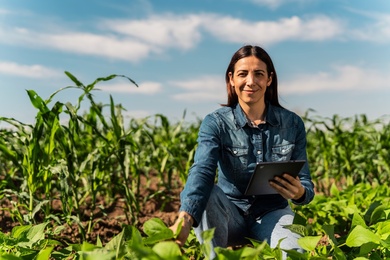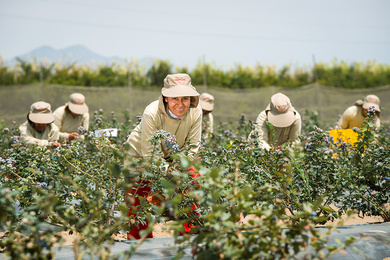What Imminent Opportunities and Challenges Does Our Region’s Agro-industry Present?

Agriculture is essential to our very existence. It is the principal driving sector of the economies of Latin America and the Caribbean (LAC) and the world in general: more than 2.5 billion people are estimated to depend on agriculture, and more than 240 million of them live in our region.
At IDB Invest, we are witnessing the evolution of the agribusiness sector and the competing pressures, opportunities, and new challenges it faces, leading to a reformulation of the bases and forms in which it develops.
On one hand, the sector faces a constantly expanding demand for agricultural commodities and foods (challenge of greater productivity), supported by population growth, increased urbanization, more available income generating dietary changes favoring more sophisticated and healthier foods, and a greater demand for agricultural commodities intended for energy production.
In turn, this increased consumption comes laden with increased demands from consumers, requiring companies to be more ethical, transparent, and committed to their value chains; to comply with laws; to pay taxes, to grant employee benefits over and above those established by law, and to commit to the sustainability agenda. More and more consumers are even demanding that companies become involved in initiatives that ultimately and often replace the work of governments.
Supply and resources
On the other hand, there are supply side limitations on the availability of essential resources such as water and land suitable for production, which are both increasingly scarce and of lower quality due to the action of climate change (agriculture is responsible for using 70 percent of available fresh water, for producing more than 40 percent of greenhouse gases, known as GHGs, and for 70 percent of biodiversity losses on the planet).
Climate change is a daily reality in the sector, increasingly affecting yields, adding to the volatility of the business, and thus increasing the costs of production by reducing margins, leaving behind less efficient producers who are generally the smallest ones (48 percent of the rural population is poor and 40 percent lives in extreme poverty).
You may also like:
- Why Does Latin America and the Caribbean Need to Discuss About Proptech?
- What Can Latin America and the Caribbean Expect from the Machine Learning Revolution?
- Six LatinFinance 2019 Awards Recognizing IDB Invest’s Efforts
Given this market reality of increasing demand and limited growth in supply, business as usual is no longer an option. The coming challenge will mean that companies will have to dedicate themselves to producing more and better foods with significantly fewer resources, focus on the development and implementation of technology and innovation in disruptive models that reduce food lost in the production process (food waste), increase intensity in the use of resources (labor, land, water), reduce the production of GHGs and energy consumption, and ensure a sustainable and integrated global value chain.
Companies are making progress on this agenda, committing time and substantial resources to concrete predefined objectives tied to the sustainability of their operations and value chains, as well as betting on new technologies and disruptive working methods. We also see this more and more in IDB Invest’s clients, who are committing to be part of the solution with increased investments in innovative practices and business models that have a positive impact on climate change, as a way to generate new business opportunities, protect their reputations, increase their competitiveness, and reduce overall risks.
Strategy for the immediate future
However, the appropriate and sustainable operation of the global food system requires joint action in all links of the chain. Accelerating investments in climate-smart agriculture requires:
- That governments generate the incentives needed and define clear and stable rules of the game;
- That companies commit to supporting sustainable value chains;
- That producers adopt more sustainable agricultural practices;
- That consumers are increasingly aware and demand transparency in value chains; and
- That financial institutions have a holistic long-term view of the industry and provide innovative financial solutions.
Over the last four years, we at IDB Invest have structured sustainable financing throughout the agribusiness sector’s value chain in 31 projects, in 20 countries, and for more than $890 million. In addition, as part of the long-term strategic relationships we establish with our clients and our holistic view of the business, we have implemented various technical assistance operations that seek to support the adoption of sustainable practices and technologies at the level of companies and their value chains.
Looking ahead, we will continue to focus on supporting companies and projects that align with the three pillars of our strategy: increased competitiveness, climate change mitigation and adaptation; and support for inclusive business models. We firmly believe that this is the path we need to follow.■
LIKE WHAT YOU JUST READ?
Subscribe to our mailing list to stay informed on the latest IDB Invest news, blog posts, upcoming events, and to learn more about specific areas of interest.
Subscribe



